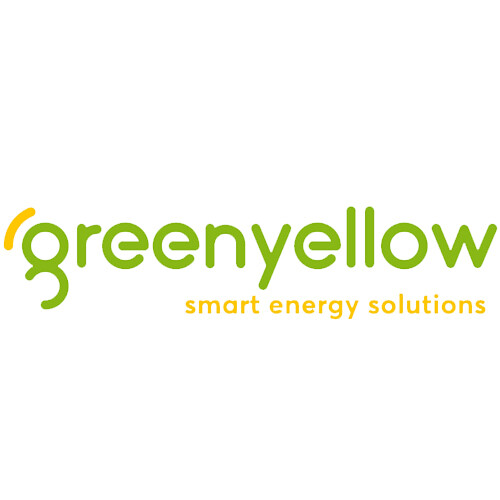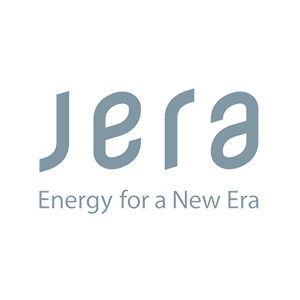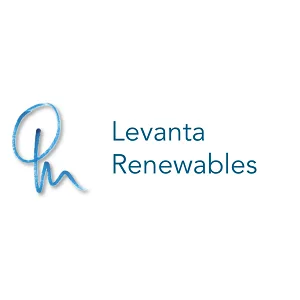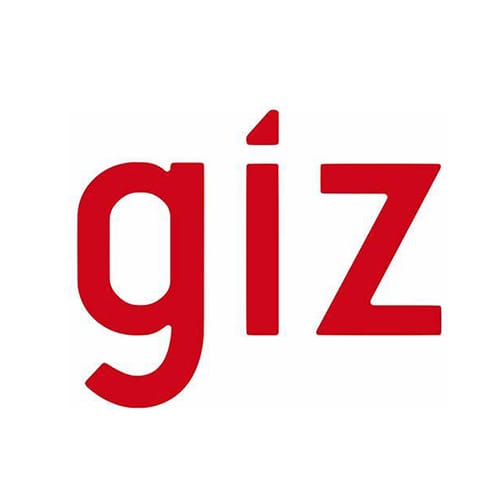Professional energy translation services in Vietnam
Energy documents contain complex terminology and require a high level of accuracy. Translation in the energy field demands experienced translators and a professional translation management process to ensure that technical and legal information is accurately conveyed, helping energy companies operate efficiently and comply with regulations in international markets.

Our energy translation services
Why choose us
Confidentiality
All resources involved in the energy translation service delivery process at AM Vietnam are trained in security awareness and best professional practices.
Dedicated teams
AM Vietnam's language services are delivered by a team of translators and experts with tailored experience and expertise.
ISO 9001:2015
Since 2018, our language services are accredited to meet ISO 9001:2015 quality standards by the British Standards Institution (BSI).
Business continuity
We always have back-up resources of same or higher levels to ensure business continuity.
Get free energy translation quote
FREQUENTLY ASKED QUESTIONS
ON ENERGY TRANSLATION
The energy sector is broadly categorized into several key areas, based on the type of energy source and its application. Here are the major energy sectors:
1. Fossil Fuels
- Oil & Gas (Exploration, production, refining, and distribution)
- Coal (Mining, processing, and power generation)
2. Renewable Energy
- Solar Energy (Photovoltaic, solar thermal)
- Wind Energy (Onshore and offshore wind farms)
- Hydropower (Dams, run-of-river, pumped storage)
- Biomass & Bioenergy (Biogas, biofuels, waste-to-energy)
- Geothermal Energy (Direct use and power generation)
3. Nuclear Energy
- Nuclear Power Plants
- Nuclear Fuel Processing & Waste Management
4. Electricity & Power Distribution
- Power Generation (Thermal, hydro, nuclear, renewables)
- Transmission & Distribution (Grid infrastructure, smart grids)
- Energy Storage (Batteries, pumped hydro, hydrogen storage)
5. Energy Efficiency & Conservation
- Building Energy Management
- Industrial Energy Efficiency
- Smart Technology Integration
6. Emerging Technologies & Alternative Energy
- Hydrogen Energy (Green hydrogen, blue hydrogen)
- Tidal & Wave Energy (Marine energy solutions)
- Advanced Battery Technologies (Lithium-ion, solid-state)
- Carbon Capture & Storage (CCS)
Are you looking for types of documents related to energy, such as reports, certifications, policies, or contracts? Here are some common energy-related document types:
- Energy Audit Report – A detailed analysis of energy consumption and efficiency.
- Energy Performance Certificate (EPC) – A certification rating a building’s energy efficiency.
- Power Purchase Agreement (PPA) – A contract between an energy provider and a buyer.
- Renewable Energy Feasibility Study – A report evaluating the viability of renewable energy projects.
- Environmental Impact Assessment (EIA) – A document assessing the environmental effects of an energy project.
- Energy Policy & Regulations – Governmental or corporate documents outlining energy-related rules.
- Utility Bills & Energy Statements – Monthly/quarterly energy usage and cost breakdowns.
- Sustainability Report – A company’s report on energy efficiency and carbon footprint.
- Grid Connection Agreement – A document for integrating renewable energy sources into the grid.
Energy translations require high accuracy, industry-specific expertise, and adherence to technical, legal, and regulatory standards. Below are the key quality criteria:
1. Accuracy & Technical Precision
- ✅ Correct Terminology – Use precise energy-sector terminology and standard industry glossaries.
- ✅ Consistent Units & Conversions – Ensure correct use of measurement units (e.g., MW, kWh, BTU) and accurate conversions.
- ✅ Error-Free Translation – No grammatical, spelling, or contextual errors that could impact meaning.
2. Subject Matter Expertise
- ✅ Energy Industry Knowledge – Translators should have experience in fossil fuels, renewables, power grids, or specific energy fields.
- ✅ Understanding of Engineering & Technical Documents – Ability to translate manuals, specifications, safety guidelines, and reports.
- ✅ Regulatory & Compliance Awareness – Knowledge of international and local energy policies, safety standards, and environmental regulations.
3. Consistency & Terminology Management
- ✅ Use of Translation Memory (TM) Tools – Maintain consistency across large documents and repeated phrases.
- ✅ Terminology Glossaries – Maintain a custom energy sector glossary to ensure consistency across projects.
- ✅ Standardized Style Guides – Adhere to industry guidelines for clarity and formatting.
4. Clarity & Readability
- ✅ Concise & Clear Language – Avoid ambiguity, especially in safety instructions and technical descriptions.
- ✅ Structured Formatting – Maintain readability with proper headings, tables, and bullet points where applicable.
- ✅ Localization & Adaptation – Adjust content for target markets, ensuring compliance with local regulations.
5. Confidentiality & Data Security
- ✅ Non-Disclosure Agreements (NDAs) – Ensure translators follow strict confidentiality agreements.
- ✅ Secure Data Handling – Use encrypted communication and secure platforms for document exchange.
- ✅ Protection of Proprietary Information – Safeguard sensitive technical and business details.
6. Compliance with Industry Standards
- ✅ ISO 17100 Certification – Ensure the translation provider follows international quality standards.
- ✅ Energy-Specific Compliance – Adhere to IEC, ISO, and regional energy standards.
- ✅ Legal & Regulatory Accuracy – Align translations with energy laws, environmental policies, and safety regulations.
7. Review & Quality Assurance (QA) Process
- ✅ Bilingual Proofreading & Editing – Conduct independent reviews by subject matter experts.
- ✅ Technical Expert Validation – Engage engineers or energy professionals to verify content accuracy.
- ✅ Final Quality Control Check – Ensure all linguistic, technical, and formatting requirements are met.
A structured energy translation process ensures accuracy, consistency, and compliance with industry standards. Below is a step-by-step workflow for professional energy translation services.
1. Project Analysis & Preparation
- ✅ Receive & Review Documents – Analyze the content type (technical, legal, marketing, etc.).
- ✅ Assess Scope & Complexity – Identify terminology, industry standards, and regulatory requirements.
- ✅ Client Consultation – Understand target audience, required localization, and compliance needs.
- ✅ Glossary & Style Guide Development – Create or update a terminology database based on industry terms.
- ✅ Select Qualified Translators – Assign subject matter experts with experience in the specific energy sector (e.g., renewables, fossil fuels, nuclear, etc.).
2. Translation Process
- ✅ Use of Translation Memory (TM) & CAT Tools – Ensure consistency and efficiency in repetitive content.
- ✅ Initial Translation by a Subject Matter Expert (SME) – A professional translator with energy industry expertise translates the document.
- ✅ Maintain Formatting & Structure – Ensure proper alignment with technical specifications and document templates.
3. Editing & Review
- ✅ Bilingual Editing – A second linguist or editor checks for grammar, terminology consistency, and clarity.
- ✅ Technical Expert Review – Energy professionals or engineers validate technical accuracy and compliance with regulations.
- ✅ Units & Data Verification – Double-check units (MW, kWh, BTU), formulas, and numerical values for precision.
4. Quality Assurance (QA) & Final Review
- ✅ Proofreading & Formatting Check – Ensure layout consistency, correct fonts, and proper structure.
- ✅ Legal & Compliance Check – Validate regulatory accuracy for compliance with ISO, IEC, and local energy laws.
- ✅ Final Review by a Senior Linguist – Conduct a last check to eliminate any remaining errors.
5. Delivery & Client Feedback
- ✅ Secure File Delivery – Provide encrypted and formatted final translations.
- ✅ Post-Delivery Support – Address client feedback and make necessary revisions.
- ✅ Translation Memory Updates – Store new terms and phrases for future projects to enhance efficiency.
Additional Best Practices
- 🔹 Use of AI-Assisted Tools with Human Oversight – For faster, high-volume translations while maintaining quality.
- 🔹 Regular Training for Translators – Keep up with new energy sector developments, technologies, and standards.
- 🔹 Compliance with ISO 17100 & Industry Regulations – Ensure translations meet international quality benchmarks.
We provide multilingual notarized contract translation services including:
- Certified translation of documents
- Notarized copies of documents
You can learn more about certified translation services here >







